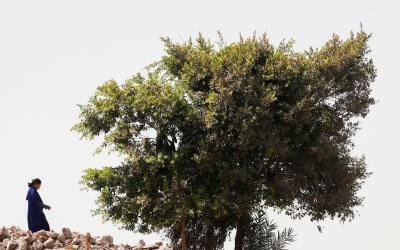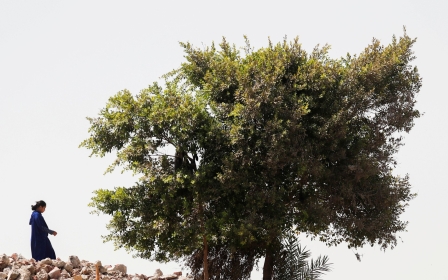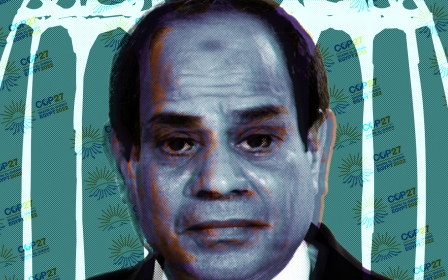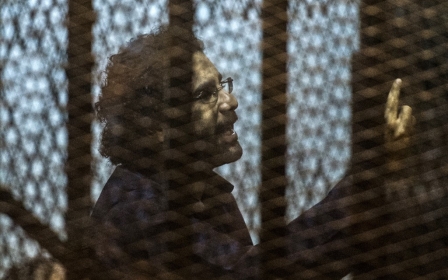Cop27: Nobel laureates raise plight of Egypt's political prisoners ahead of summit
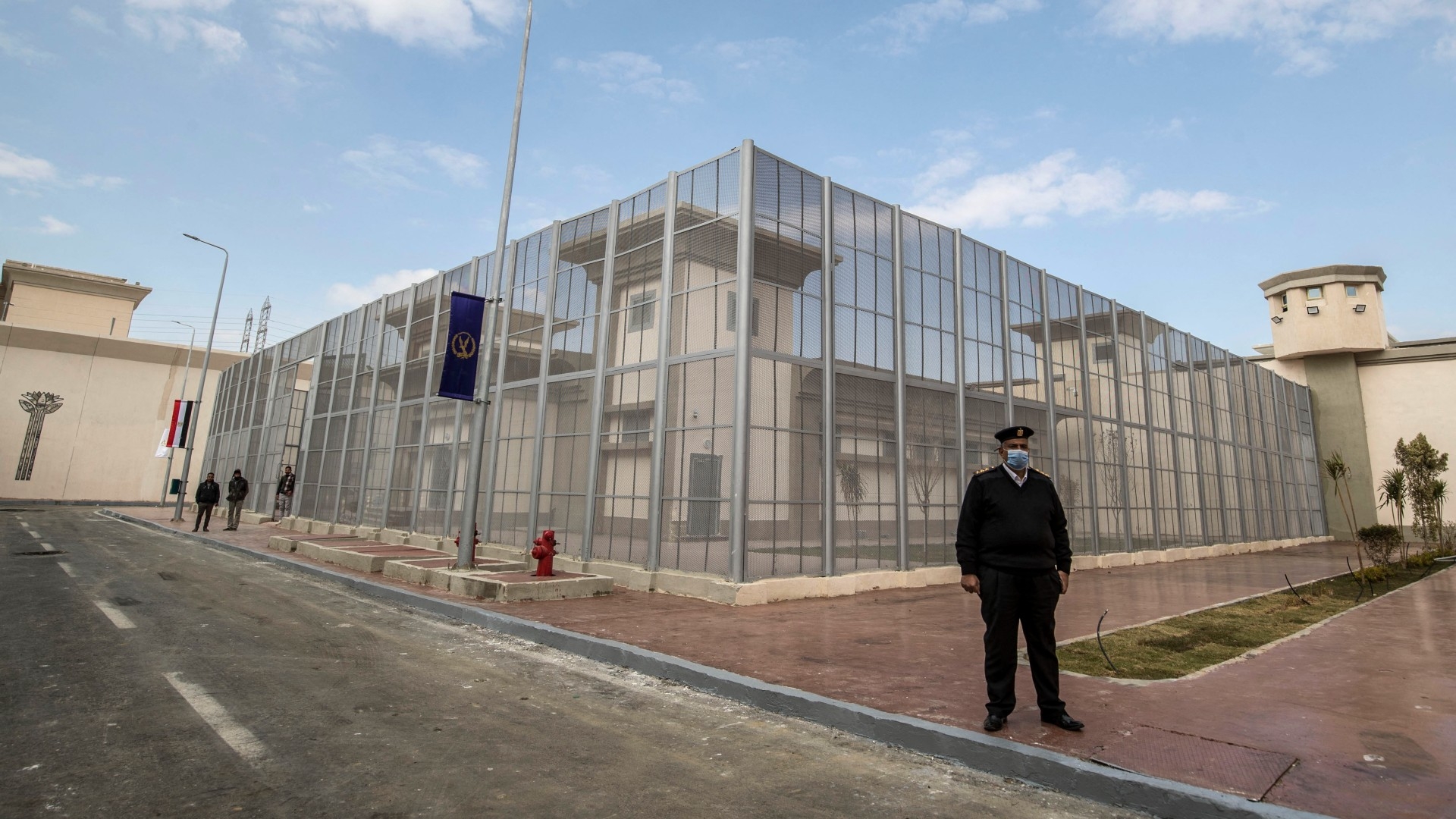
Thirteen winners of the Nobel Prize for literature have written to world leaders urging them to discuss the plight of political prisoners in Egypt ahead of its hosting of the Cop27 United Nations climate change conference.
The summit will take place in Egypt’s resort town of Sharm el-Sheikh from 6-18 November, amid tight restrictions on peaceful assembly and free speech.
The letter, published on Wednesday, is signed by the majority of Nobel literature laureates alive today. It was organised by the publisher of Alaa Abdel Fattah, a British-Egyptian writer imprisoned in Egypt.
“We… write to urge you to devote part of your agenda to the many thousands of political prisoners held in Egypt’s prisons - most urgently, the Egyptian-British writer and philosopher, Alaa Abd el-Fattah, now six months into a hunger strike and at risk of death,” it stated.
The plea was signed by Svetlana Alexievich, JM Coetzee, Annie Ernaux, Louise Glück, Abdulrazak Gurnah, Kazuo Ishiguro, Elfriede Jelinek, Mario Vargas Llosa, Patrick Modiano, Herta Müller, Orhan Pamuk, Wole Soyinka and Olga Tokarczuk.
New MEE newsletter: Jerusalem Dispatch
Sign up to get the latest insights and analysis on Israel-Palestine, alongside Turkey Unpacked and other MEE newsletters
The letter was also signed by science laureates Roger Penrose and George Smith.
'Exploitation and coercion'
Residents in Sharm el-Sheikh and its surrounding areas have told Middle East Eye that the area has been turned into what looks like "a war zone", with draconian security measures allegedly aimed at protecting the event.
The Nobel laureates said that world leaders should reconstruct “the status quo away from exploitation and coercion.
“If the world’s leaders gather in Egypt and leave without even a word about the most vulnerable, then what hope can they have?” they said.
“Ultimately, it is not through compromise with authoritarianism that crises are averted.
"We believe that it is through more democracy, more transparency and more civic participation that the truest route to sustainability lies.”
At least 60,000 political prisoners are estimated to have been jailed since President Abdel Fattah el-Sisi overthrew Mohamed Morsi, the country's first democratically elected president, in 2013.
Alaa Abd el-Fattah, who called for peaceful assembly and free speech, was an icon of the 2011 Egyptian revolution and has spent eight of the past 10 years in jail on various charges.
On Tuesday, he announced he would be escalating the partial hunger strike he began on 2 April, and would refuse any food or drink ahead of Cop27.
"After five days, on Sunday, 6 November, I shall drink my last glass of water. What will follow is unknown," he said in a letter shared on social media by relatives.
Middle East Eye delivers independent and unrivalled coverage and analysis of the Middle East, North Africa and beyond. To learn more about republishing this content and the associated fees, please fill out this form. More about MEE can be found here.


